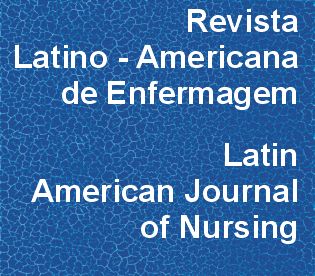Psychosocial and behavioral factors associated to STD/AIDS risk among health students
DOI:
https://doi.org/10.1590/S0104-11692007000200012Keywords:
acquired immunodeficiency syndrome, sexually transmitted diseases, risk factors, sexual behavior, prevention & controlAbstract
This study aimed to identify and compare psychosocial and behavioral factors associated to STD/AIDS risk among students enrolled in the first and last years of the Nursing and Medical Undergraduate Programs at State University of Londrina. A convenience sample was selected from 263 enrolled students, and the 183 students who were sexually active (70.4%) had their data assessed. The Aids Risk Reduction Model framework was used to design the questionnaire in which a 5% statistical significance level was considered. Some risk factors were identified such as the perception of invulnerability, multiple sexual partners, consumption of alcoholic beverages before intercourse, and the discontinuous use or no use of condom. The risk factors are common both to the freshman and senior students, with no significant differences related to the passage of time or to the students' higher educational level. Senior students tend to be monogamous which makes them feel safer and decrease the use of condom with their sexual partners.Downloads
Download data is not yet available.
Downloads
Published
2007-04-01
Issue
Section
Original Articles
License
RLAE’s authorship concept is based on the substantial contribution by each of the individuals listed as authors, mainly in terms of conceiving and planning the research project, collecting or analyzing and interpreting data, writing and critical review. Indication of authors’ names under the article title is limited to six. If more, authors are listed on the online submission form under Acknowledgements. The possibility of including more than six authors will only be examined on multicenter studies, considering the explanations presented by the authors.Including names of authors whose contribution does not fit into the above criteria cannot be justified. Those names can be included in the Acknowledgements section.
Authors are fully responsible for the concepts disseminated in their manuscripts, which do not necessarily reflect the editors’ and editorial board’s opinion.
How to Cite
Dessunti, E. M., & Reis, A. O. A. (2007). Psychosocial and behavioral factors associated to STD/AIDS risk among health students. Revista Latino-Americana De Enfermagem, 15(2), 267-274. https://doi.org/10.1590/S0104-11692007000200012



